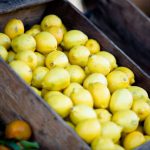**Digital Farming: Using Big Data to Boost Food Production**
In today’s rapidly evolving agricultural landscape, the integration of technology is revolutionizing the way farmers approach their craft. One of the most significant advancements in this digital age is the utilization of big data to enhance food production. Digital farming, also known as precision agriculture, leverages the power of data analytics, sensors, and other technologies to optimize farming practices, increase efficiency, and ultimately boost crop yields. This groundbreaking approach marks a significant shift from traditional farming methods, offering farmers unprecedented insights and tools to make informed decisions that can drive sustainable and profitable agricultural operations.
**Enhancing Crop Monitoring and Management**
One of the key benefits of digital farming is its ability to provide real-time data on various aspects of crop growth and health. Through the use of sensors and imaging technologies, farmers can monitor key indicators such as soil moisture levels, nutrient content, and pest infestations with unparalleled precision. This data-driven approach allows farmers to make timely interventions, such as adjusting irrigation schedules, applying fertilizers more efficiently, and deploying targeted pest control measures. By closely monitoring and managing crop conditions, farmers can optimize resource use, minimize waste, and ensure optimal crop health, leading to higher yields and improved quality.
**Precision Farming Techniques**
Digital farming also encompasses a range of precision farming techniques that enable farmers to tailor their practices to specific field conditions. By utilizing GPS technology and drones, farmers can create detailed maps of their fields, identifying areas with varying soil characteristics, moisture levels, and crop health. This granular level of information allows farmers to implement site-specific management strategies, such as variable-rate fertilization and seeding, to maximize the productivity of each field. By customizing inputs based on precise data, farmers can achieve more uniform crop growth, reduce input costs, and increase overall farm profitability.
**Data-Driven Decision-Making**
Central to the concept of digital farming is the emphasis on data-driven decision-making. By collecting and analyzing vast amounts of data from multiple sources, farmers can gain valuable insights into their operations and make informed choices to optimize performance. Advanced analytics tools enable farmers to identify trends, patterns, and correlations that may not be apparent through traditional observation alone. This analytical approach empowers farmers to fine-tune their practices, improve efficiency, and adapt to changing conditions in real time. By harnessing the power of big data, farmers can unlock new opportunities for innovation and growth in agriculture.
**Sustainability and Environmental Benefits**
Digital farming not only enhances productivity and profitability but also offers significant sustainability and environmental benefits. By optimizing resource use and minimizing waste through precise management practices, farmers can reduce their environmental footprint and contribute to conservation efforts. Smart irrigation systems, for example, can help conserve water resources by delivering the right amount of water to crops based on actual needs, reducing water waste and runoff. Additionally, by using data-driven approaches to pest and disease management, farmers can minimize the use of chemical inputs, lowering the impact on ecosystems and human health. Overall, digital farming presents a holistic approach to agriculture that balances economic viability with environmental stewardship.
**Driving Innovation in Agriculture**
The adoption of digital farming practices is driving innovation and transforming the agricultural sector. By embracing technology and data analytics, farmers are able to unlock new possibilities for improving efficiency, sustainability, and resilience in the face of evolving challenges such as climate change and resource constraints. As the agricultural industry continues to embrace digital transformation, the potential for further advancements in precision agriculture is vast. From autonomous vehicles to machine learning algorithms, the future of farming is increasingly becoming interconnected with cutting-edge technologies that have the power to revolutionize food production on a global scale.
**In summary**
Digital farming represents a paradigm shift in agriculture, leveraging big data and technology to optimize farming practices, increase efficiency, and boost food production. By harnessing the power of data-driven decision-making, precision farming techniques, and sustainable practices, farmers can enhance crop monitoring, improve resource management, and drive innovation in the agricultural sector. As the world faces growing challenges in feeding a rapidly expanding population, digital farming offers a promising solution to meet the demands of the future while ensuring the long-term sustainability of our food systems.





